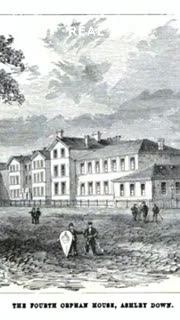Embracing Church History for Faithful Living Today
Devotional
Sermon Summary
Bible Study Guide
Sermon Clips
1. "Understanding church history is not just about understanding the church in the past, but also important for how we are today. So we can learn to live today. We can understand from the mistakes and from the lessons. We can understand the lessons of the past, and we can therefore apply them to our lives today." [01:26] (18 seconds)
2. "As Jesus did so, it says their hearts burned within them. It's not until they understood their past here in Scripture, leading up to the present time in their moment in their lives that day, that they then were able to understand who Jesus was. And history does something like that to us as well, church history." [02:31] (22 seconds)
3. "The church didn't just appear here in the 21st century, here in 2024. It's been around for a long time, centuries. And so as we understand our past, as we understand how God has been working in the past, hopefully this does something similar to us, that we can understand, therefore, who we are, at least parts of who we are today." [03:27] (24 seconds)
4. "The primary project of this period was to apply human reason to all the reality. And thinkers of the day valued above all else, reason, skepticism, and empirical observation. So there's one thing. One picture I want to leave you with is this picture of the mind. An attempt to apply the mind and reason and logic and observation as thoroughly and rigorously as possible to every area of our existence, including the church and faith." [07:44] (37 seconds)
5. "What happens in the Enlightenment as a general trend is that as the Enlightenment progressed, there was a kind of a spiritual apathy that began to set in. Kind of a secularism, a divorce between the church and the secular world, the church and the state, and the church and the rest of the society. Because reason began to even be skeptical about the church, about faith." [08:52] (31 seconds)
6. "We sometimes think that the church is this constant, or in modern eras, this constant decline in terms of secularism, but actually it's not quite true. There's these kind of waves and troughs in terms of spirituality and response to God's word throughout history. And this was definitely one of the troughs in terms of modern history." [10:48] (22 seconds)
7. "Powerful sermons, convicting people of their present state, of their hearts, and many people, came weeping, confessing emotional responses, and fell to their feet, and brought their lives to the church, and to the Lord, in these revivals. Entire churches, entire denominations actually were begun. The Methodists were one of the results of these great revivals. Missionary activity increased during this time." [16:30] (34 seconds)
8. "The picture I want to leave with you is this heart, and the affections of the heart in particular. In fact, Jonathan Edwards, one of the first great revivalist preachers, wrote a book called A Treatise on the Religious Affections, which is describing true signs of a real religious conversion and transformation of the heart." [17:44] (20 seconds)
9. "One of the real contributions of Brethrenism is this real activism, this real sense of just doing something and being active for the Lord. So, again, what are some of the Brethren distinctives? Well, I've mentioned a few. I'm just going to focus again on four, or three and a half, I guess. The end times, there's this focus on the end times, that they were right on the cusp of Jesus, Jesus returning." [25:21] (33 seconds)
10. "How do we recapture a sense of the urgency of the Christian life that can take our eyes off of the focusing of the things around us and onto the things of God, the things truly important? Think about in your life, if the Lord Jesus were coming tomorrow, tomorrow, what's one area of life that you would change? That's how these men lived in that era. They believed Jesus was coming very soon." [33:28] (34 seconds)
Ask a question about this sermon
2. "As Jesus did so, it says their hearts burned within them. It's not until they understood their past here in Scripture, leading up to the present time in their moment in their lives that day, that they then were able to understand who Jesus was. And history does something like that to us as well, church history." [02:31] (22 seconds)
3. "The church didn't just appear here in the 21st century, here in 2024. It's been around for a long time, centuries. And so as we understand our past, as we understand how God has been working in the past, hopefully this does something similar to us, that we can understand, therefore, who we are, at least parts of who we are today." [03:27] (24 seconds)
4. "The primary project of this period was to apply human reason to all the reality. And thinkers of the day valued above all else, reason, skepticism, and empirical observation. So there's one thing. One picture I want to leave you with is this picture of the mind. An attempt to apply the mind and reason and logic and observation as thoroughly and rigorously as possible to every area of our existence, including the church and faith." [07:44] (37 seconds)
5. "What happens in the Enlightenment as a general trend is that as the Enlightenment progressed, there was a kind of a spiritual apathy that began to set in. Kind of a secularism, a divorce between the church and the secular world, the church and the state, and the church and the rest of the society. Because reason began to even be skeptical about the church, about faith." [08:52] (31 seconds)
6. "We sometimes think that the church is this constant, or in modern eras, this constant decline in terms of secularism, but actually it's not quite true. There's these kind of waves and troughs in terms of spirituality and response to God's word throughout history. And this was definitely one of the troughs in terms of modern history." [10:48] (22 seconds)
7. "Powerful sermons, convicting people of their present state, of their hearts, and many people, came weeping, confessing emotional responses, and fell to their feet, and brought their lives to the church, and to the Lord, in these revivals. Entire churches, entire denominations actually were begun. The Methodists were one of the results of these great revivals. Missionary activity increased during this time." [16:30] (34 seconds)
8. "The picture I want to leave with you is this heart, and the affections of the heart in particular. In fact, Jonathan Edwards, one of the first great revivalist preachers, wrote a book called A Treatise on the Religious Affections, which is describing true signs of a real religious conversion and transformation of the heart." [17:44] (20 seconds)
9. "One of the real contributions of Brethrenism is this real activism, this real sense of just doing something and being active for the Lord. So, again, what are some of the Brethren distinctives? Well, I've mentioned a few. I'm just going to focus again on four, or three and a half, I guess. The end times, there's this focus on the end times, that they were right on the cusp of Jesus, Jesus returning." [25:21] (33 seconds)
10. "How do we recapture a sense of the urgency of the Christian life that can take our eyes off of the focusing of the things around us and onto the things of God, the things truly important? Think about in your life, if the Lord Jesus were coming tomorrow, tomorrow, what's one area of life that you would change? That's how these men lived in that era. They believed Jesus was coming very soon." [33:28] (34 seconds)










